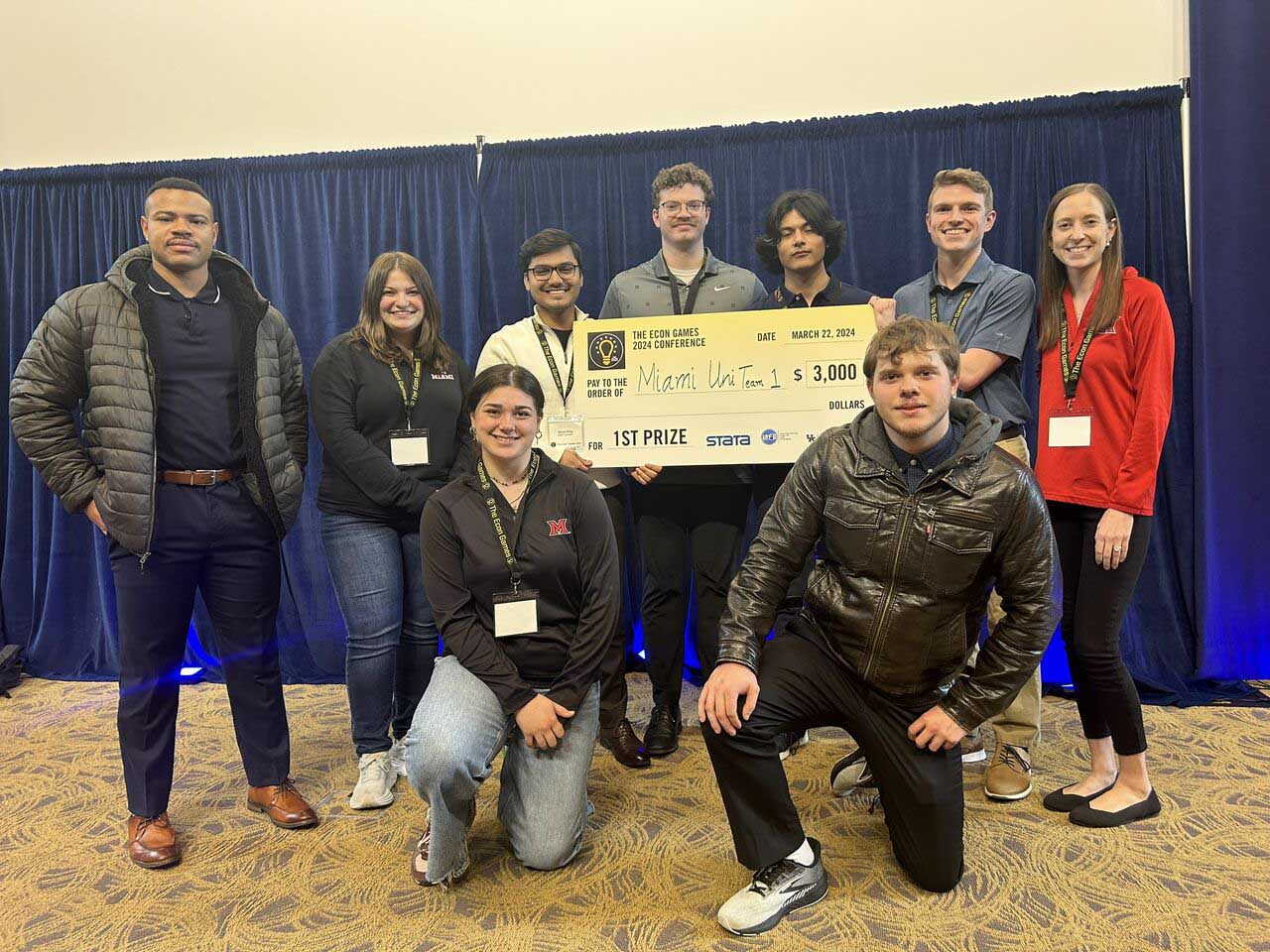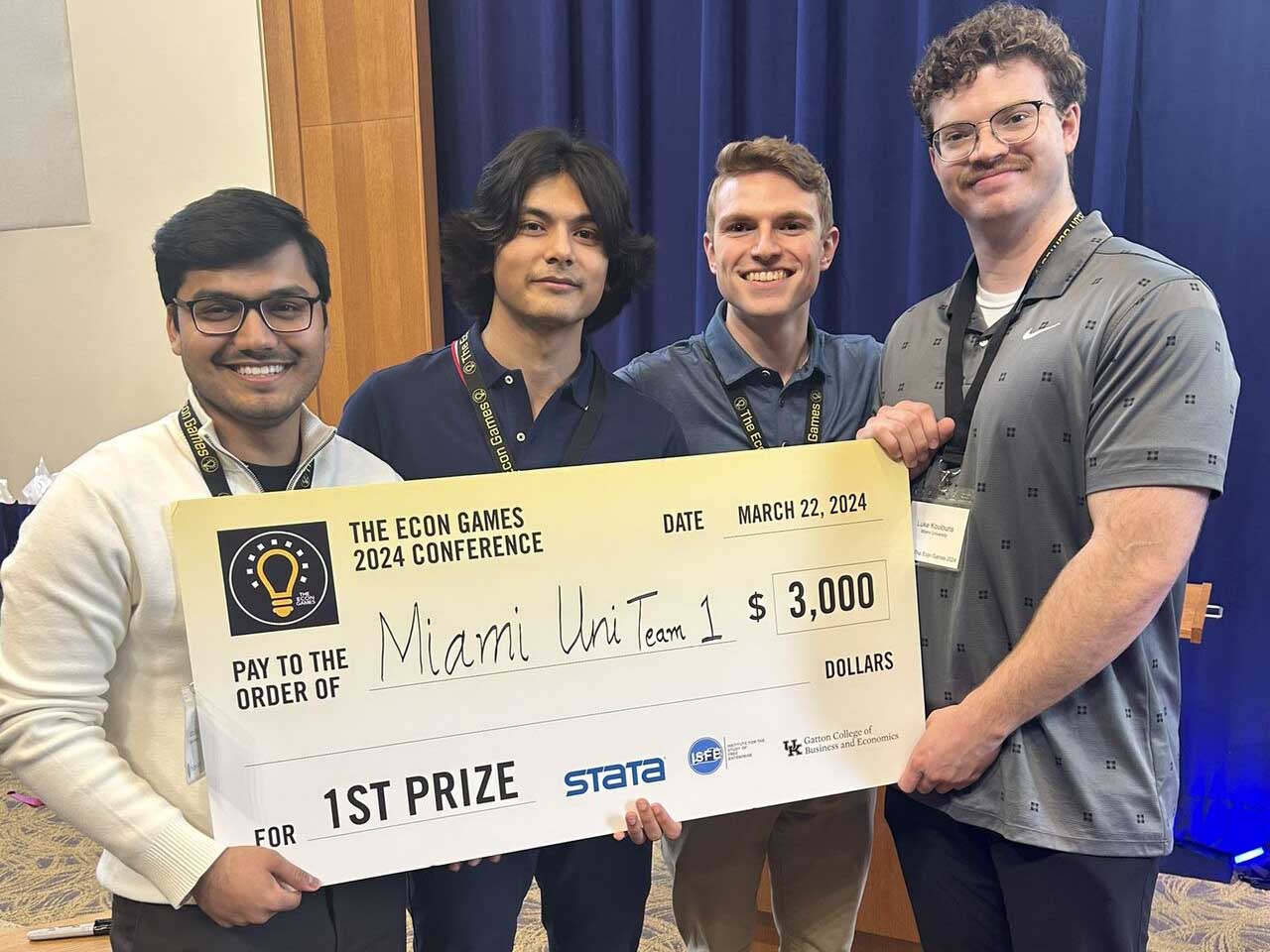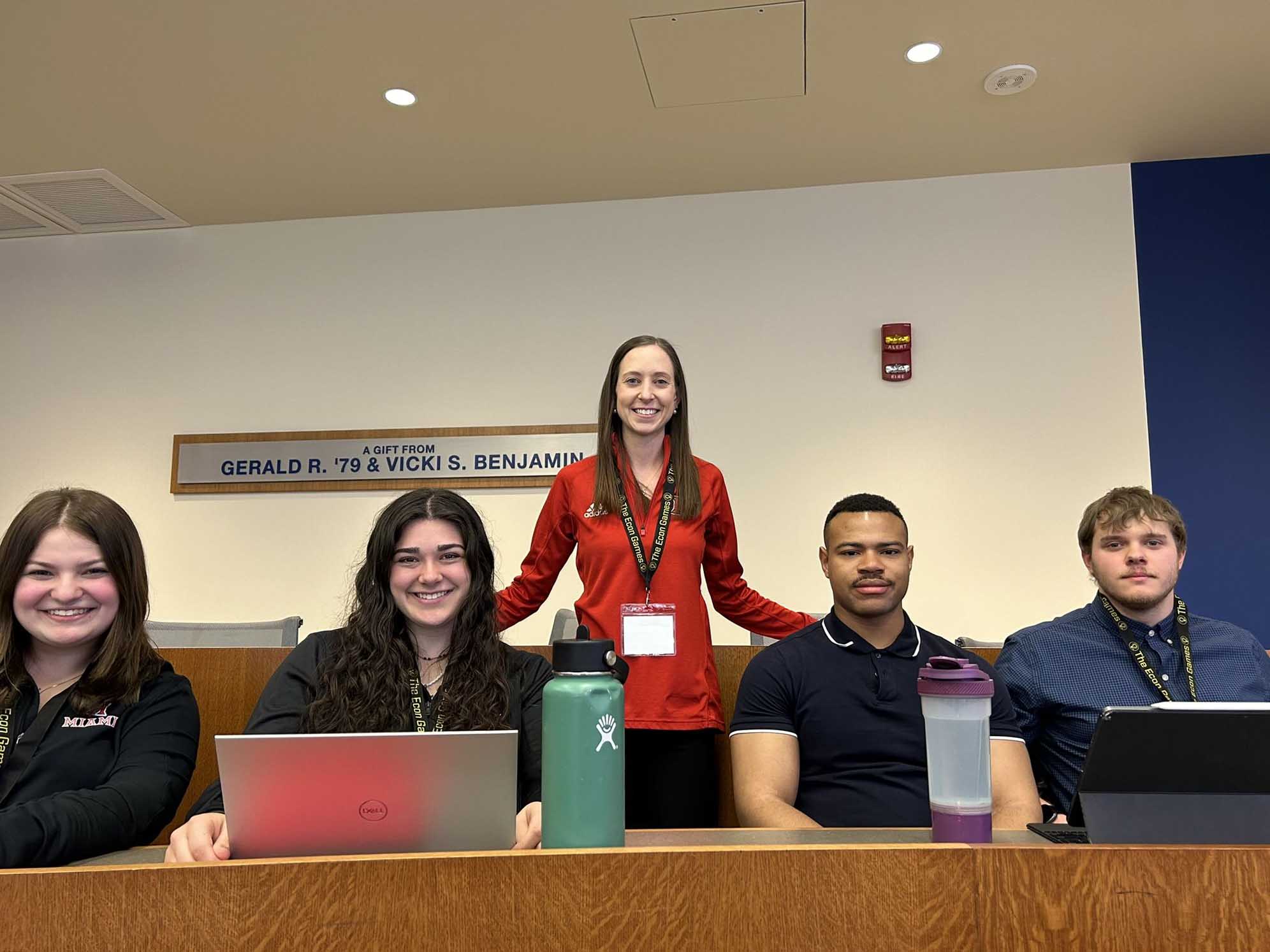Team of Miami students wins 2024 Econ Games
Nearly 20 teams competed in the Econ Games this year.

A team of Miami University students took first place in an economics competition at the University of Kentucky this month.
Farmer School economics professors Peter Nencka and Carla Nietfield helped prepare eight students -- Kaelum Adams, Grace Howard, Taylor Greenaway, Mirza Mujtaba Baig, Walker Barr, Siddhant Singh Karki, Luke Koulouris, and Carter Pratt – to take part in the 2024 Econ Games.
“The Econ Games is a team competition that incorporates economic skills with data analytics to solve problems presented by a corporate sponsor. Students gain valuable technical skills, as well as essential soft skills such as teamwork, communication, and persuasion,” Nietfield said.
The teams received their datasets on Thursday afternoon with a prompt of “analyze the factors influencing housing demand and supply in Kentucky (State/city/county) and determine the quantity of homes required in different market segments (e.g., by price range, number of beds, etc.) to meet projected demand shifts and maintain price stability over the next 5 to 10 years.”
“I was initially skeptical because much of our work seemed to parallel our classes at Miami, just simple data analysis. But my doubt soon vanished as we got further into the project,” junior data analytics and economics major Pratt said. “As we refined everything, we took a second look at the prompt and realized that data analysis was just the first step of many. We had to think for ourselves, understand the real market factors that impacted the housing market, and correct the crisis within it.”
“Since November, we met weekly to review past competitions and explore techniques for data cleaning and analysis. I initially got involved after receiving an email from the Miami Economics department and attended their meetings regularly,” sophomore data science and statistics major Baig said. “The competition's alignment with my data science background and its integration of data and economics concepts appealed to me.”
The 19 teams from 11 universities worked through Thursday and Friday before they made their final presentations on Friday afternoon.
“The students learned so much about themselves and their abilities to tackle challenges in a very short 24 hour period. As their faculty advisor, I really enjoyed seeing my past students thrive during the competition and see their creativity and confidence shine during their presentations,” Nietfield said. “Aside from the student aspects, it's also a great opportunity for the faculty advisors to meet with faculty from all over the country and network regarding research projects and teaching tools.”
“The Econ Games was an amazing experience. Before the meetings my team and I had prior to the competition, I didn't know any of my teammates. As a matter of fact I was still learning their names on the way to Kentucky,” senior premedical studies and economics major Koulouris said. “The Econ Games allowed my team and I to foster amazing relationships that extended beyond the competition. My team and I laughed together and suffered together when we thought we were lost.”
Miami's Team 1, consisting of Pratt, Karki, Koulouris, and Baig, produced a presentation that won first place.
“The biggest reason we won was because we focused on the future. We saw many proposals the government had already discussed or implemented. We were the only team to introduce the possibility of AI as a factor. We also focused our presentation on easily understood visuals and impactful words. We made sure not to bore the client with graphs or regression and instead concentrated on communicating our understanding,” Pratt said. “At the end of the presentation, when the client came with questions, we were eager to impress.”
"As someone with no background in cconomics, I was able to learn a lot during the competition. It was an extensive hands-on learning experience for me where I applied my coding/data science skills to come up with solutions," Karki, a mathematics and computer science major, said.
“Participating in the Econ Games was a challenging yet rewarding experience,” Baig said. “Despite the hard-work, the Econ Games offered understanding of data visualization for actionable insights, making it a valuable learning experience for myself and the team.”
“Overall, this experience changed how I viewed a job in this field. It wasn't just an analytics competition; we had to create something ourselves and offer solutions to a problem we had learned about 24 hours before. It was a chance to understand the importance of working with others, communicating across knowledge levels, and thinking for yourself,” Pratt said. “They never gave us any answers; we had to find them and refine them into something we were proud to put on display.”
“Our advisors gave us the support when we needed it, and the founders of the Econ Games Dr. Darshak Patel and Dr. Abdullah Al-Bahrani, were great mentors along the way,” Koulouris said. “I would highly recommend students from all majors, not just economics majors, to participate in the Econ Games.”

